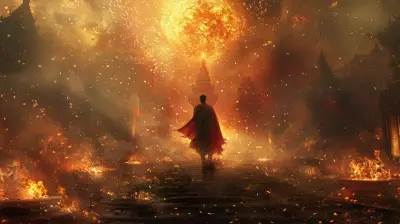How RPGs Are Pushing the Boundaries of Gender and Identity Representation
21 June 2025
When we talk about role-playing games (RPGs), it's almost magical how they let us slip into the shoes of someone else—whether that’s a sword-wielding elf, a cunning hacker, or a space-faring adventurer. But beyond just the armor, spells, and stats, RPGs have taken on a more meaningful mission lately. They're becoming powerful platforms where players can explore who they are—or who they want to be. And that includes playing with gender and identity in ways that would’ve been unheard of even a decade ago.
So, how exactly are RPGs pushing the boundaries of gender and identity representation? Let’s dive in.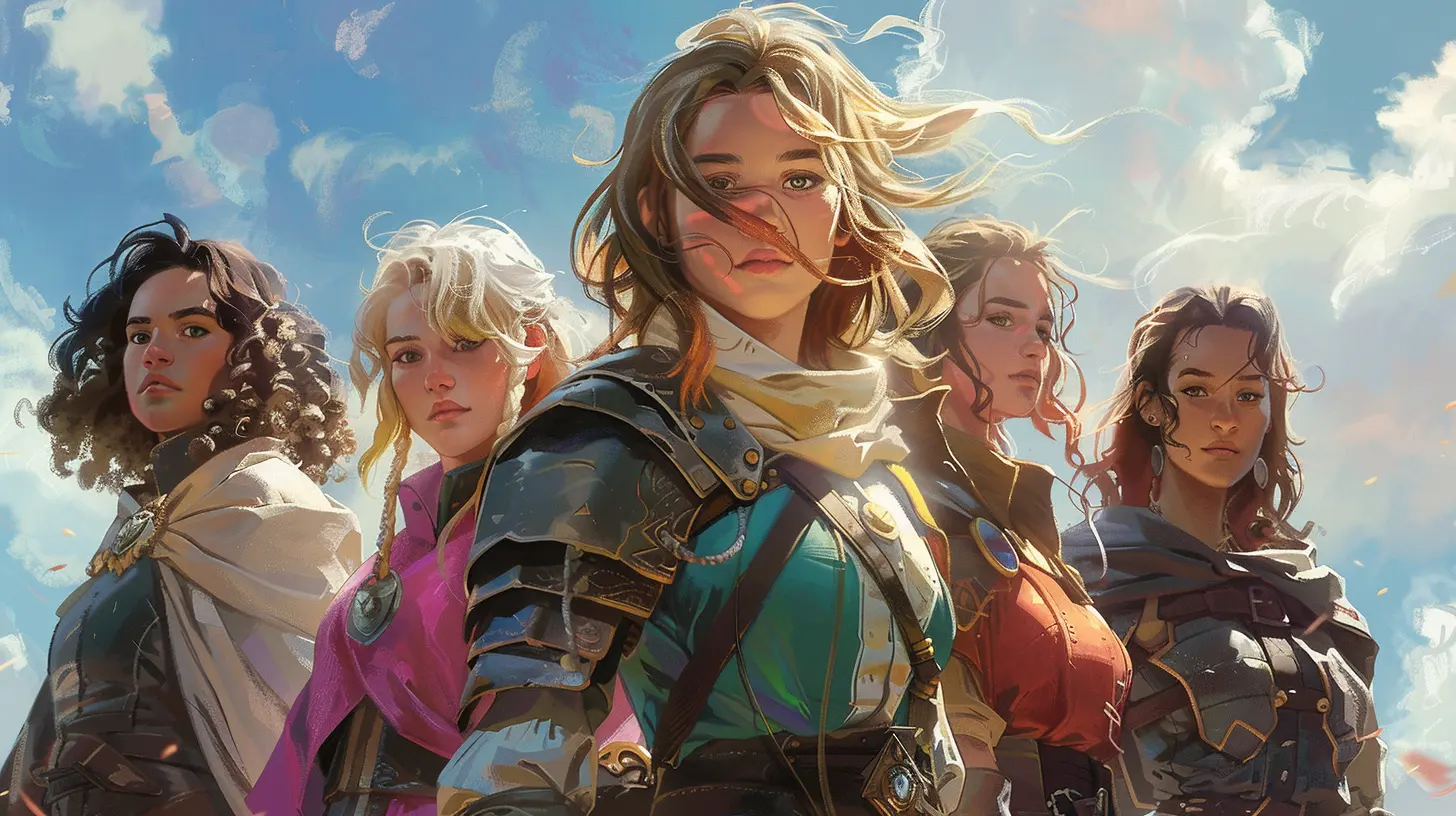
The Evolution of RPG Character Creation
From Binary Choices to Boundless Customization
Remember when picking a character’s gender just meant choosing between "Male" or "Female"? That was the norm for the longest time in RPGs. It felt limiting, especially for players who didn’t feel like they fit neatly into those boxes. But that’s changing—a lot.Modern RPGs are redefining character creation. Games like Cyberpunk 2077 and Baldur’s Gate 3 let players choose pronouns independently from body types or voices. And that might sound small, but for many, it’s huge. It’s about being seen.
When you can make a character that reflects your true self—or even a version of yourself you’re still discovering—it opens the door to deep personal experiences. For some, it’s affirming. For others, it’s healing.
Character Creation as a Safe Space
Creating a character isn’t just cosmetic. It’s a safe space to experiment. Whether you’re cisgender, non-binary, trans, or questioning, RPGs give you a playground to explore identity without fear of judgment. You can try on a new name, new pronouns, and live as that character for hours—sometimes hundreds of them.Think of it as digital dress-up meets self-discovery. Pretty powerful stuff, right?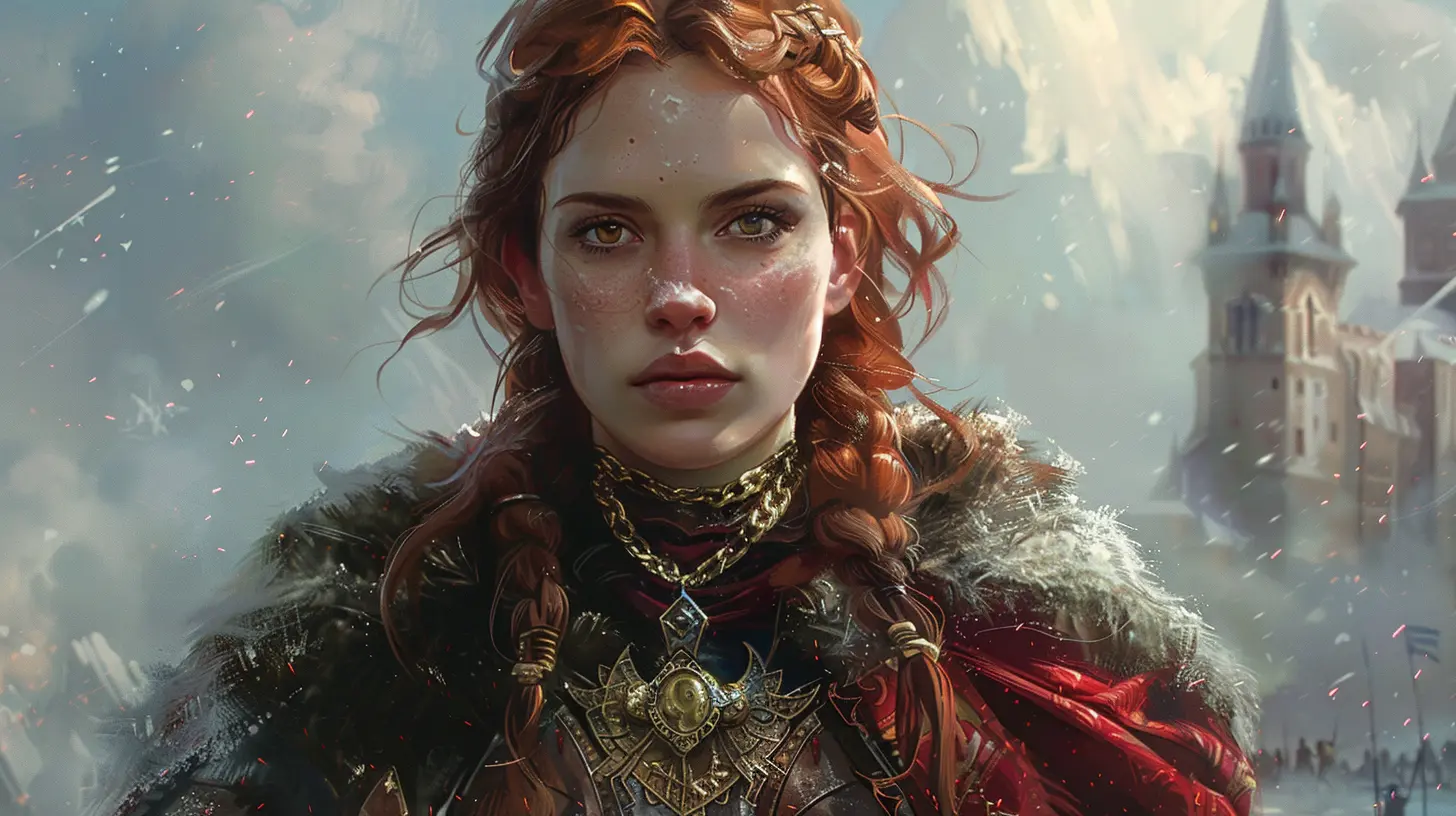
Storytelling That Reflects Real-World Diversity
Queer and Trans Stories Are Front and Center
In the past, LGBTQ+ characters were sidekicks—if they were even there at all. But now? They’re heroes, leaders, villains, lovers, and everything in between.Games like Dragon Age: Inquisition introduced us to Krem, a transgender man respected for his skills in battle. In The Outer Worlds, Parvati—a fan favorite—is a romantic asexual woman with depth, charm, and agency. And in Tell Me Why, we get Tyler Ronan, a trans man who isn’t just a token character, but the very heart of the game’s emotionally rich story.
These characters aren’t there to tick a diversity box. They exist to tell compelling, human stories. Their identities inform their experiences but don’t define every part of who they are. That’s real representation.
Authentic Writing From Authentic Voices
The industry is also waking up to something crucial: representation behind the scenes matters just as much. Games that want to get gender and identity "right" are hiring LGBTQ+ writers and consultants to craft authentic narratives.This not only boosts the quality of the storytelling but also ensures characters don’t fall into harmful stereotypes. Because let’s be honest—we’ve seen enough of those in the past.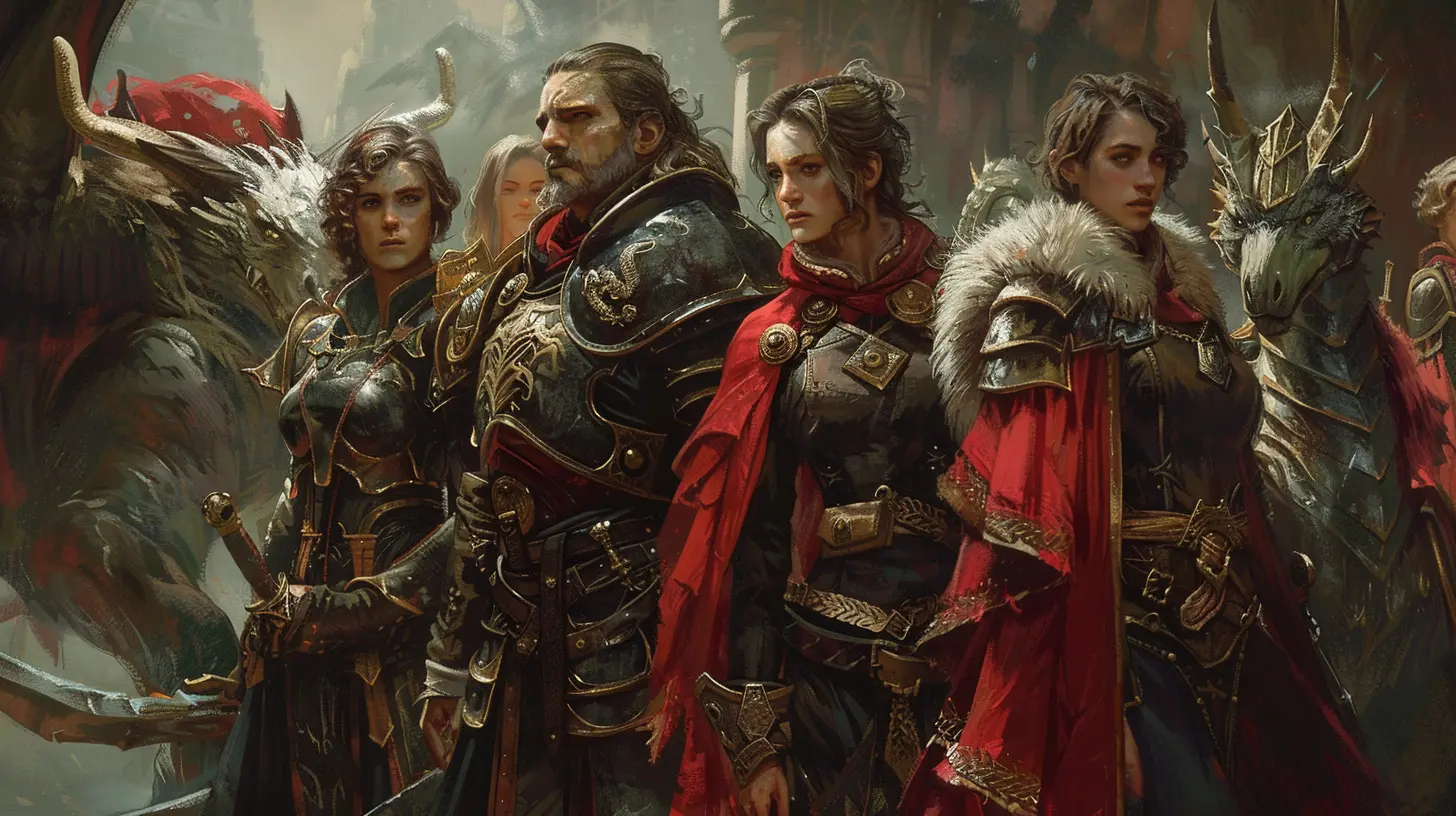
Player Agency = Identity Exploration
"Be Who You Want to Be" Isn’t Just a Tagline
One of the coolest things about RPGs is the freedom they offer. Want to be a genderless cyber-ninja? Go for it. Want to be a trans woman leading a space rebellion? Absolutely. These games empower players not just to play as someone else, but to express their truest self.Games are becoming a kind of interactive mirror. You can project your identity into them, reflect on it, or explore something totally new. The emotional impact of this can’t be overstated. For players figuring themselves out, RPGs often offer the first time they feel truly seen.
Dialogue Options That Recognize Your Choices
Ever picked your pronouns at the start of a game and then had every character in the world consistently respect them? Feels awesome, right?More RPGs are programming dialogue systems that respond to your gender and identity choices. It's not just surface-level stuff, either. Characters in these games acknowledge your identity and build relationships with you accordingly.
It’s a level of care that makes the world feel alive—and inclusive.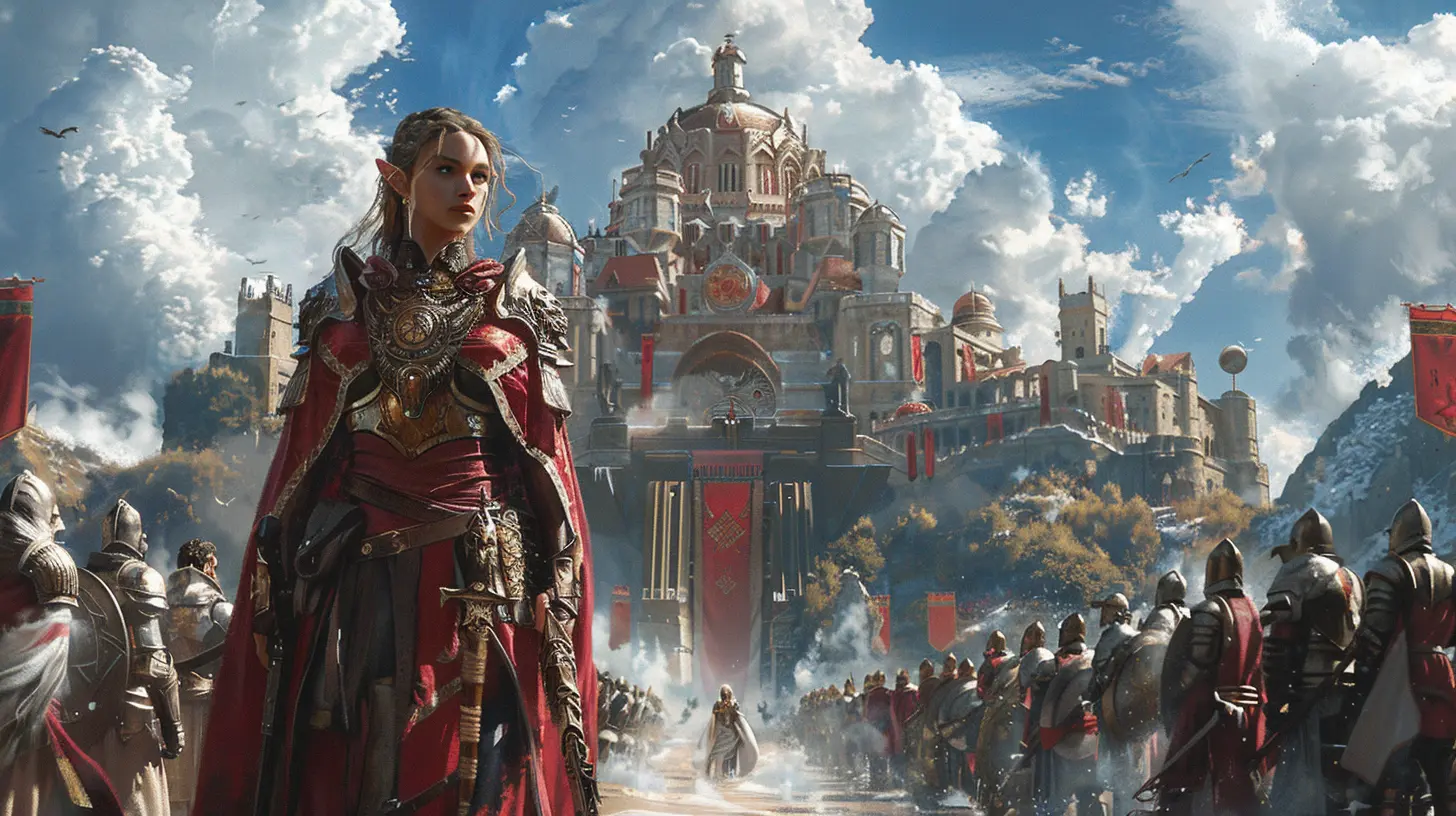
The Power of Modding Communities
Fans Pushing Things Further
Even when developers fall short, fans often pick up the slack. Modding communities have long been safe havens for people looking to expand gender and identity representation in games.Don’t see an option for a non-binary character voice? There’s probably a mod for that. Want relationship options that reflect your orientation? Modders have your back.
These fan-driven efforts show how deeply players care about inclusive representation. And they're proof that even if the industry moves slowly, the community is already ten steps ahead.
Queer Modders Changing the Game
Some modders aren’t just tweaking games—they’re transforming them. Take the Skyrim modding community, for example. It has an entire subculture dedicated to introducing LGBTQ+ content, expanding pronoun options, and rewriting in-game dialogue to reflect real-world diversity.It’s like building new branches on the same old tree. And those branches? They’re growing wild and beautiful.
Indie RPGs—The Experimental Edge
Less Budget, More Heart
While big-budget RPGs are making moves, indie games are where the boldest identity experimentation happens. Without massive shareholder pressure, indie developers can get weird, honest, and real.Look at 2064: Read Only Memories. It features a non-binary android and reflects a world where gender fluidity is the norm. Or try Celeste, whose creator later confirmed the main character Madeline is a trans woman—a subtle, powerful layer to a game already about personal struggle and transformation.
Indie RPGs often punch way above their weight when it comes to emotional storytelling and inclusive design. They’re not afraid to go places AAA games fear to tread.
Designing for Representation From the Start
What sets many indie RPGs apart is that they’re built from the ground up with inclusivity in mind. The characters, narratives, and dialogue don’t "add in" representation—they breathe it from line one.For players used to not seeing themselves in games, these titles are refreshing, validating, and sometimes even life-changing.
The Road Ahead: Challenges and Opportunities
Representation Isn’t Always Perfect
Let’s be real—there’s still a long way to go. Some games still treat gender flexibly in the character creator but then misgender characters in scenes. Others might feature LGBTQ+ characters but kill them off early (hello, Bury Your Gays trope).Representation must go beyond surface-level checkboxes. It’s about building fully-realized characters whose identities matter but don’t overshadow their humanity.
But the Trend Is Clear
Despite the occasional stumble, things are trending in the right direction. More developers are treating gender and identity with nuance, respect, and care. Studios are hiring diverse talent. Players are demanding better. The momentum is undeniable.And ultimately, that’s what makes RPGs so special. They’re not just games. They’re storytelling engines, empathy machines, and identity sandboxes all rolled into one.
Final Thoughts: RPGs as Mirrors and Windows
RPGs have always been about stepping into someone else’s world. But today, they’re just as much about stepping into your own. Whether you’re exploring your identity, experimenting with expression, or simply seeking a world where you feel seen, RPGs are opening those doors.They’re becoming mirrors that reflect who we are—and windows into who we might become.
And honestly? That’s a beautiful thing.
all images in this post were generated using AI tools
Category:
Role Playing GamesAuthor:

Madeleine McCaffrey
Discussion
rate this article
2 comments
Harlow McKibben
Absolutely loved this article! RPGs are truly breaking new ground in representing diverse genders and identities. It's refreshing to see games that reflect our world and give everyone a voice. I can't wait to explore more characters who resonate with my own experiences. Keep up the great work!
September 2, 2025 at 4:55 AM

Madeleine McCaffrey
Thank you for your kind words! I'm glad the article resonated with you and highlighted the importance of diversity in RPGs. Exciting times ahead for representation in gaming!
Lana Henderson
This article brilliantly highlights how RPGs are expanding narratives around gender and identity, fostering inclusivity and diverse representation. It's exciting to see gaming evolve in such meaningful ways!
June 23, 2025 at 4:47 PM

Madeleine McCaffrey
Thank you for your thoughtful comment! I'm glad you found the article resonant and reflective of RPGs' positive evolution in representation.
